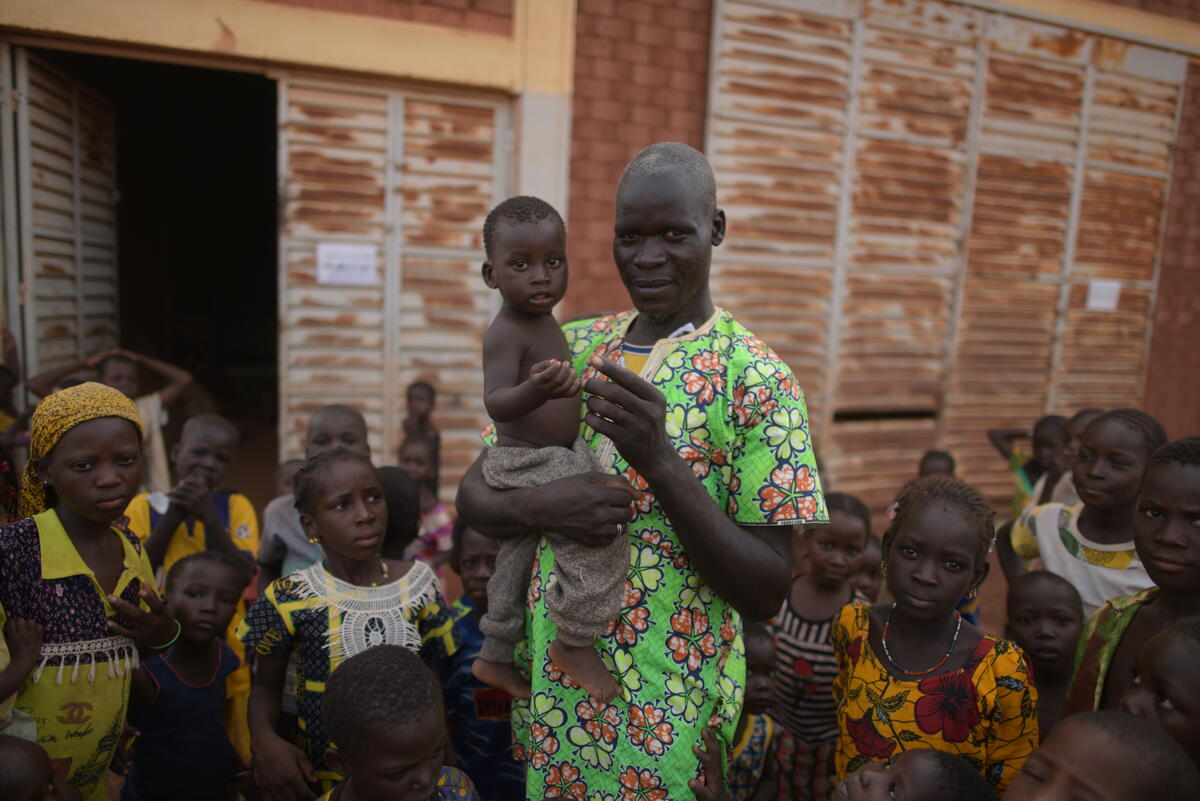Deteriorating security in parts of South Sudan hampers refugee returns
Deteriorating security in parts of South Sudan hampers refugee returns

JUBA, Sudan, March 24 (UNHCR) - The deteriorating security situation in several parts of South Sudan is hampering the repatriation of hundreds of Sudanese refugees from Uganda, Kenya and Ethiopia.
Several towns in Central and Eastern Equatoria states were last week paralysed by coordinated blockades organized by war veterans from the Sudan People's Liberation Army (SPLA) who had not been paid their benefits for five months. The violent protests disrupted life in the towns of Yei, Nimule and Kapoeta for several days.
These disturbances have affected the movement of returnees and humanitarian workers, forcing UNHCR to temporarily suspend or halt five repatriation convoys carrying some 920 returnees from Arua and Adjumani in Uganda to Yei in Central Equatoria and to Magwi County in Eastern Equatoria.
It also affected convoys from Kakuma in Kenya to Budi, Lopa and Lafon in Eastern Equatoria, and to Juba in Central Equatoria and to Twic in the Warrab region. One route from Adjumani to Nimule was accessible on Monday for the return of 389 refugees.
After meetings last Thursday and Friday with Silva Kiir, president of the autonomous government of South Sudan, the SPLA veterans lifted their blockade on Yei. However, protests are continuing in Kapoeta and the town centre is still occupied by the war veterans. Though the highway linking the South Sudan capital, Juba, to Uganda via the border town of Nimule has reopened, the Kapoeta-Narus road remains closed.
A UNHCR team has been held up at the Narus crossing point on the Kenya-Sudan border since last Thursday, prevented from leaving by the SPLA, the former rebel force which signed a comprehensive peace accord with the Sudanese government in January 2005.
In February, UNHCR suspended the repatriation of southern Sudanese refugees from Ethiopia following clashes between the SPLA and Sudanese armed forces in Malakal, which left more than 50 people dead and led to the looting of UN warehouses, and the subsequent relocation of some UN and humanitarian aid agency staff.
UNHCR is also deeply concern about the continuing conflict between the Nuer and Murle ethnic groups in the Jonglei region that has so far claimed the lives of some 750 people and caused significant displacement. The fighting, which was sparked by cattle-rustling raids in Pibor County, has now spread to Akobo and Wanding.
Last week, the governor of the Jonglei region convened an emergency meeting with UN agencies to coordinate a humanitarian response to the victims of the Nuer and Murle clashes.
The number of Sudanese refugees who voluntarily repatriated to South Sudan and Blue Nile state with the help of UNHCR since December 2005 has now reached 154,070 people.
An additional 156,830 refugees spontaneously returned to South Sudan and Blue Nile from neighbouring countries since the signature of the peace agreement in 2005. Refugees have been returning to South Sudan and Blue Nile from the Central African Republic, the Democratic Republic of the Congo, Ethiopia, Eritrea, Kenya and Uganda.







